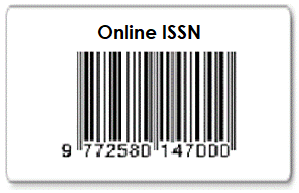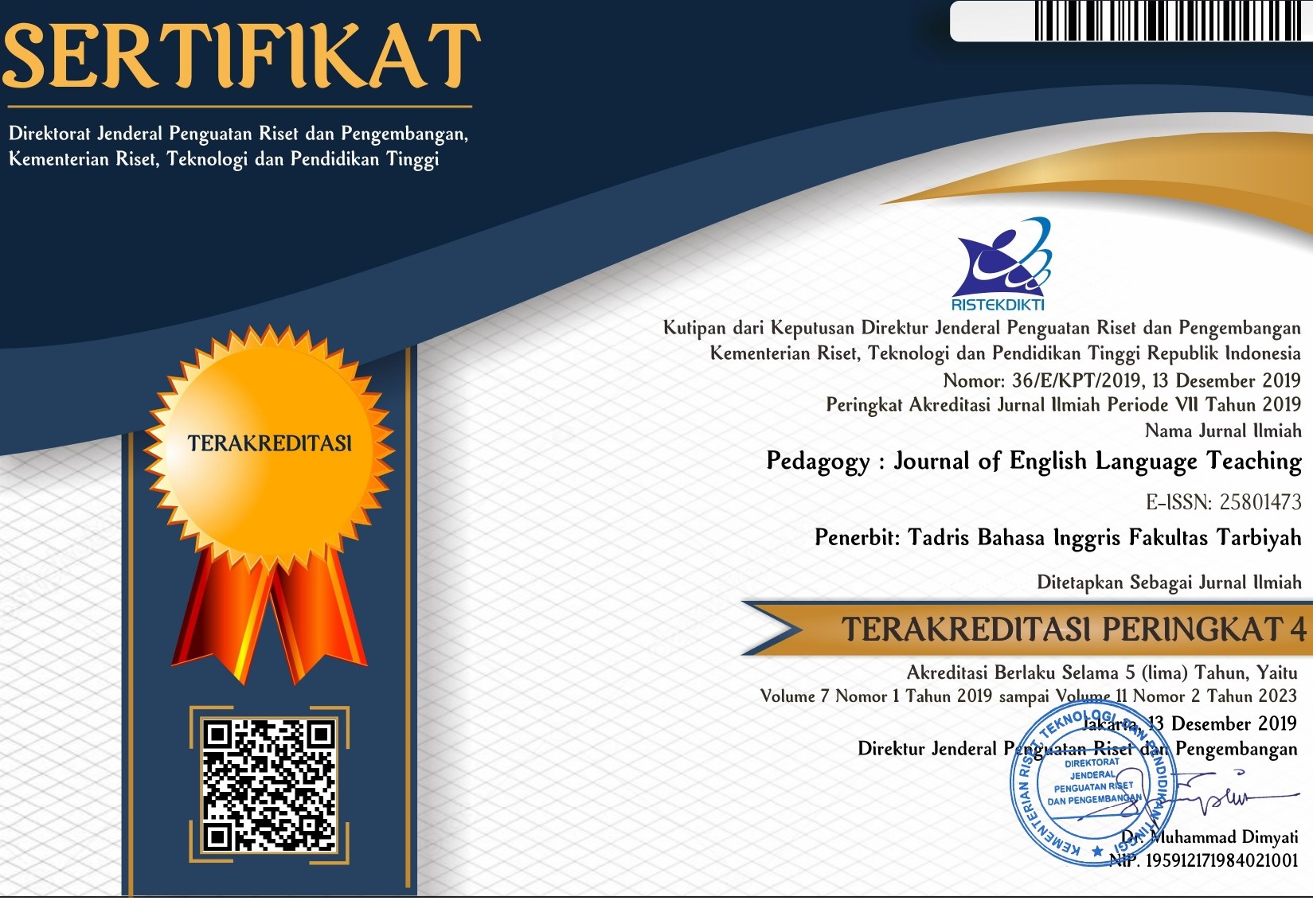An Analysis Of Inflectional Affixes Error In Argumentative Writing
DOI:
https://doi.org/10.32332/pedagogy.v6i1.1116Keywords:
Inflectional affixes, grammar, WritingAbstract
The aim of the research is to find the error of using inflectional affixes in students’ argumentative writing of the fifth semester of English Department of IAIN Metro. This research is descriptive-qualitative research. This descriptive-qualitative research use two sources, primary and secondary data, the primary data is achieved through the argumentative writing text from the fifth students semester of IAIN Metro. Then the secondary data is collected from archival. This research applies Creswell model to analyze the data. The findings research shows there are 9 argumentative writing result, they have eight errors in using {–s}, 2 errors in using {–es}, 1 error in using {–ies}, 13 errors in using {–ed}, 3 errors in using {–ing}, and there is no error in using {–er} and{–est}. Based on the data, the first error that commonly found in students’ writing production is the use of {–ed}, and the second one is the use of {–s}, and the third one is the use of {–es}. Most of the fifth semester students of the English Department of IAIN Metro have lack of knowledge about inflectional affixes and there are many students who feel difficult in deciding which one is the correct affix for the word they want. It means there are many students of the fifth semester of English Department of IAIN Metro that still can not use the inflectional affixes correctly. The conclusion of the research is the student of the fifth semester of English Department of IAIN Metro need attention to focus on writing argumentative learning and semantic specially ‘inflection affixes’.















